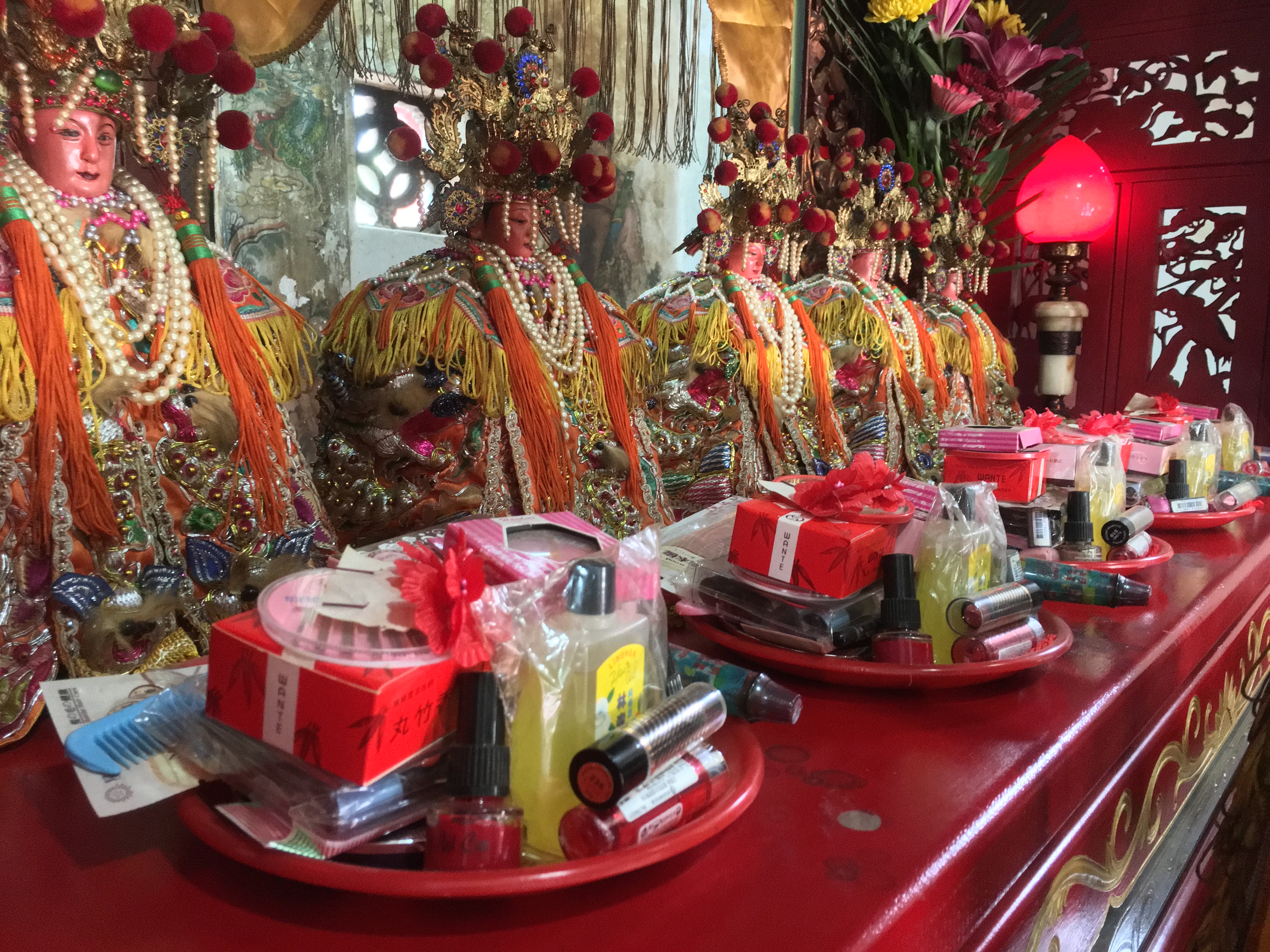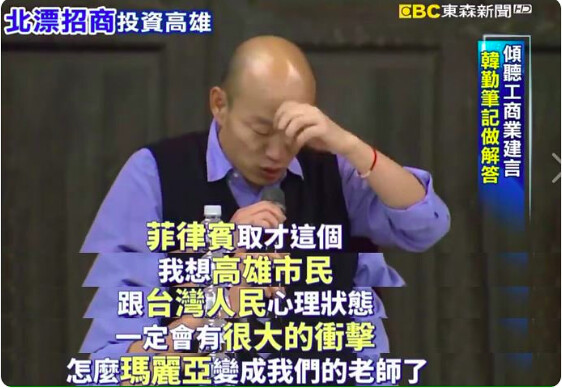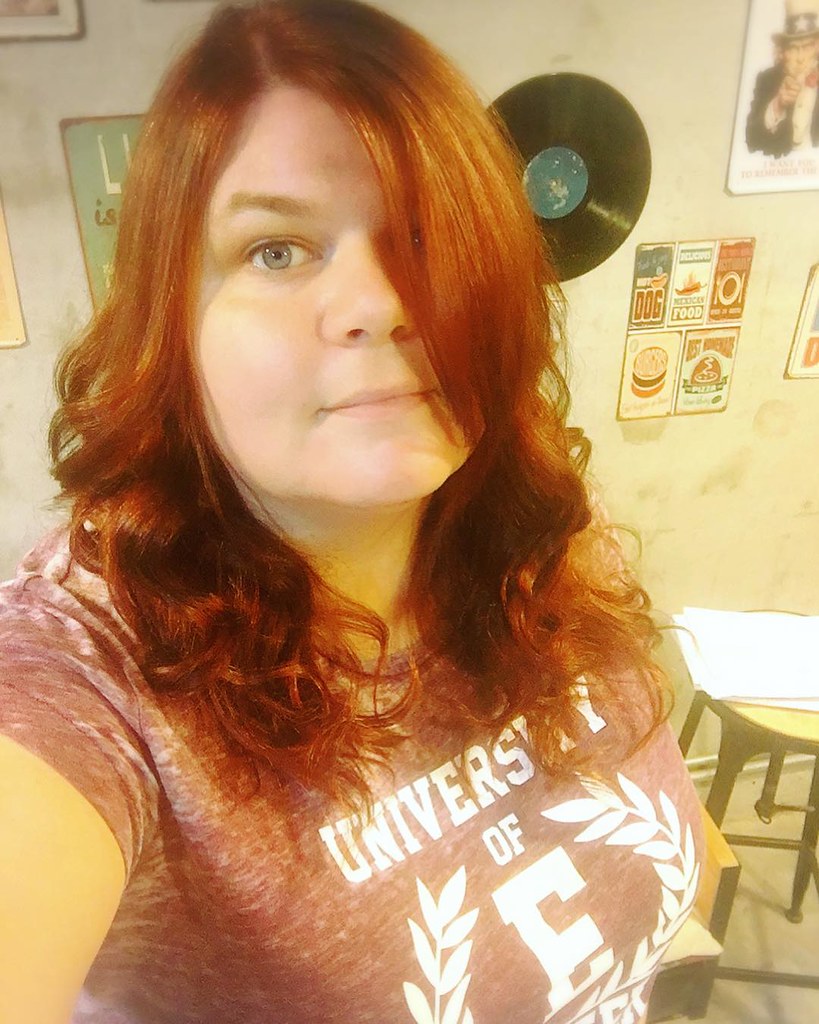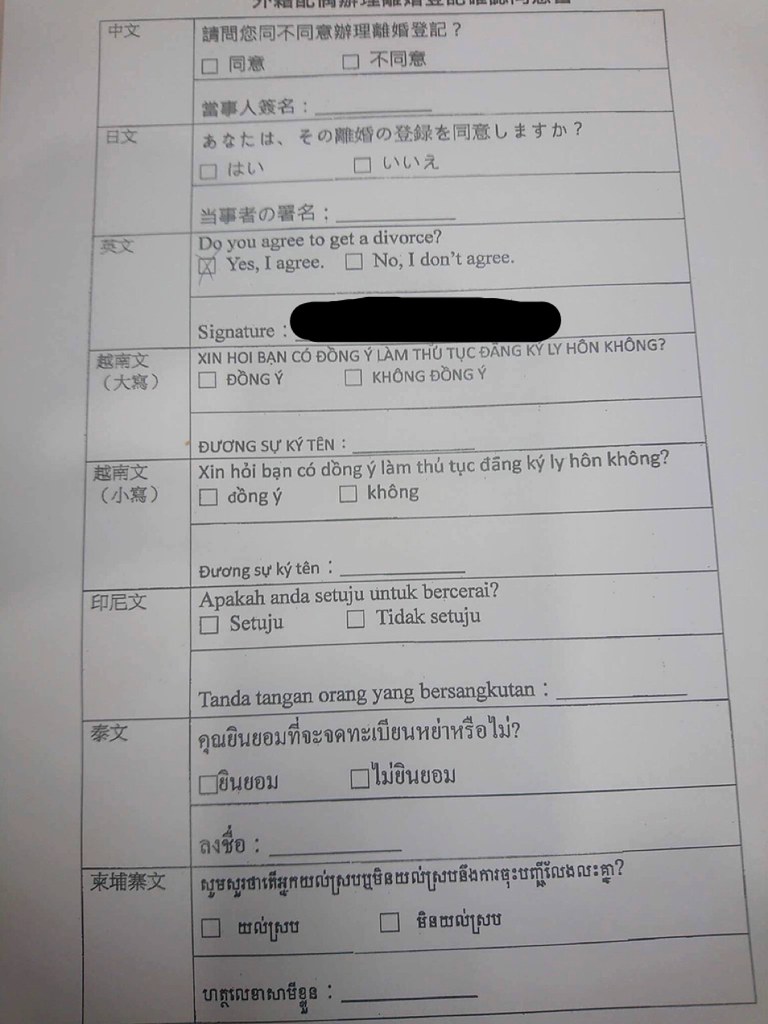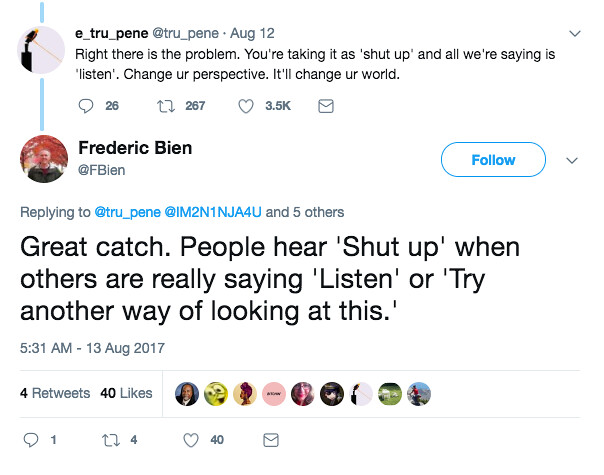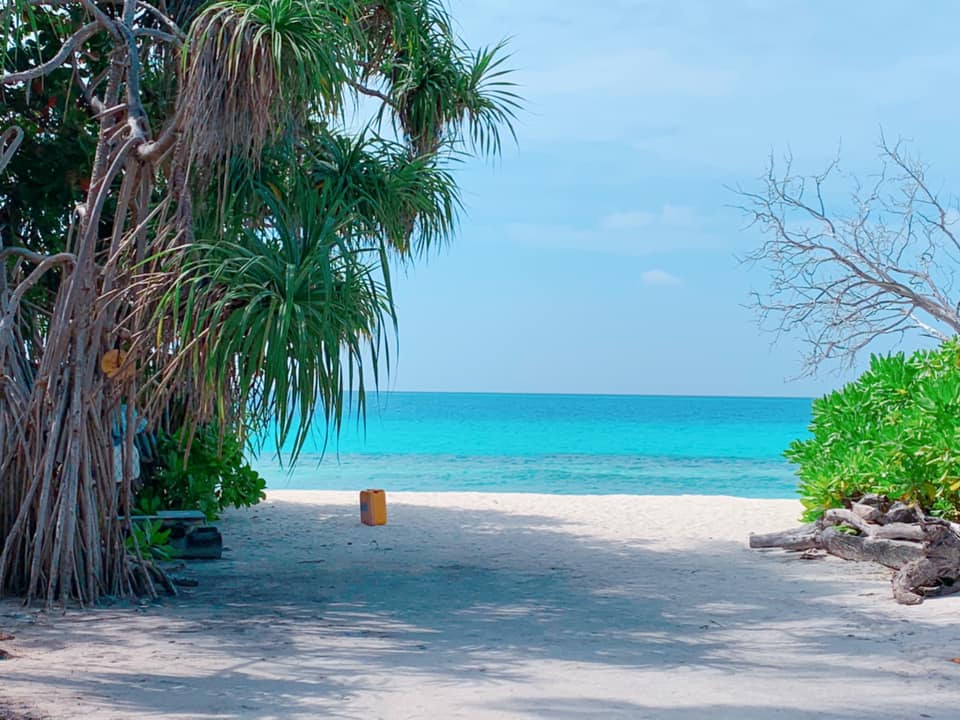
A pretty strong content warning on this. I'll be talking about hate speech by transphobes on the right and left. Suicide comes up. If that's not something you want to be around right now, I will never know and never care if you choose to skip this post. In fact, I'll respect you for your choices regarding your own wellbeing.
I also want to clarify that I know I'm not saying anything new. Trans activists have been talking about these issues for ages; it's just that I still see transphobia popping up around me, so maybe someone will read this and re-think. All I can really do is speak from a cis woman's perspective, so I try to keep to that. If you want to hear trans perspectives, I thoroughly enjoy the podcast Cancel Me, Daddy.
* * *
International Women's Day was this past Wednesday, and I really want to have cared.
I remember a time when Lao Ren Cha was specifically aimed at foreign women -- especially, but not exclusively, Western women in Taiwan. The experiences of that demographic most closely matched my own; it was an easy and frankly needed angle to take. At that time I would have written up something from that angle for something like International Women's Day without hesitation.
At times I think about going back to that narrower focus. But, over the last decade-plus, as life in Taiwan has become simply life, not some exciting new immigrant or expat journey, what I have to say isn't always categorizable by gender. I'm also no longer sure that my experiences are similar enough to the average foreign female newcomer.
Of course I remain an ardent feminist even as my blogging focus has shifted: there isn't much about my personality that is reducible to my gender, and I believe as any reasonable person does that everyone should be considered as individuals, not an agglomeration of stereotypes about how "men" or "women" should think or act.
When I came here as a starry-eyed twentysomething who believed that women, who bear so much sexism from society, could all come together in solidarity to end it. I believed then that valuable and meaningful discussions are possible with those I don't always agree with or like.
I still want to believe that's true. To some extent, I do: the idea that everyone is set in every belief is too simplistic. People can and do say things in the moment that, on further reflection, they realize are problematic, don't reflect their core values, or that they don't truly believe. I've certainly done it! Some people aren't open to new ideas, but many are.
And yet, there I sat two days ago -- a feminist blogger simply unable to write a single thing on International Women's Day. I don't generally attach great importance to specific days, but at the very least I believe that day should be one of raising each other up, not woman-on-woman conflict.
That does feel like women's rights discourse has become, however. We've always had to deal with reactionaries shouting down the concept of women having full human rights (like, say, the right to all forms of health care, including abortion), or treating women like human beings rather than some gaggle of mysterious sirens whose primary role is ornamental.
Now, however, it's clearer than ever that some of the misogyny has always come from inside the house. It feels impossible to simply engage with other feminists without having to listen to some trash talk about who is and isn't a woman (according to them), portraying some women as enemies or worse, predators, based on zero evidence -- simply because they were not assigned 'female' at birth.
In short, I'm sick of transphobes shouting about how feminism is necessarily transphobic. This is a perspective I thoroughly reject. In fact, I find that ideology embarrassing in its hatefulness, and I hope everyone clinging to it is thoroughly abashed just like so many anti-gay folks who sure panicked a few years ago, but now realize they sounded like particularly bigoted turnips. (Not all of them have repented, but there has been a change in the overall discourse.)
On International Women's Day, I seethed about it. I can really only speak from a cis perspective, but I felt genuine anger at the idea of women celebrating that day, but including only the women they deem "acceptable". I tweeted, but I didn't really write. The day after that, I started to question whether I could still truly justify that lofty ideal of solidarity.
The day after, I decided that perhaps it was time to be clear about the fact that Taiwan, at least among Western women, has a TERF problem.
I don't just mean transphobia, but specifically women who think of themselves as feminists, but exclude trans women from any discussion of women. To me, that's not feminist at all. It's not empowering; it's just exclusionary. The problem isn't limited to Taiwan expat communities: if you've listened to any of the rhetoric coming out of the West, it's everywhere. But it exists here too, and I live here, and I do not like it one bit.
Certainly, transphobia also exists in local society as well. I don't think one post can really address that, nor do I think I'm the best person to do so. Perhaps it's because my primary language of communication is English, but when I go online most of the Taiwan-based anti-trans vitriol I see being spewed is from other Westerners. There are more of them than I would have guessed, and they're difficult to avoid if one wants to participate in feminist spaces.
Transphobic cis women will insist that women's spaces should segregate on the basis of...I'm not sure really. Genitals? Chromosomes? All sorts of things that are not always clear at birth? Something. They seem to truly believe that cis women are in general consensus on this, and "women's spaces" should therefore be for cis women only.
I reject this. As a cis woman, let me be clear: there is no such consensus.
I as a cis woman refuse to be a part of any "women's space" that excludes trans women. If a group, event, meeting, club, activity, discussion or anything else is meant for only cis women, the creators might think it's for women like me, but it's not. I will not dignify the existence of spaces that claim to be for all women, but exclude some women regardless.
At that point, you don't have a "women's space" or a "feminist space", you have a transphobe space. Cis women like me who believe in inclusion for all women want nothing to do with you, so it's really just the TERFs who remain.
And why would I want to be a part of any space that claims it must exist as it does to keep women "safe", as though trans women are inherently dangerous? (They are not.) Why would I want to be around people who talk big about that safety, but don't care at all about the safety of an entire demographic of women -- the ones they seek to exclude?
I won't awkwardly smile and try to make the best of it. I won't check my disgust at the door. I won't legitimize it with my presence. I won't pretend that these are just "differences of opinion" when the TERFs sound indistinguishable from the right-wingers and their ideology does real harm.
It positions trans people as criminals when they're more likely to be the victims of crimes. It results in bullying, harassment and assaults on trans people. That, in turn, drives attempted suicide among trans people. It allows for the dissemination of disinformation targeted as "they're trying to trans your kids!", which can lead to the restriction of age-appropriate affirming care due to incorrect beliefs about such care. It allows essential care for women to deny access to some women.
All of it is in service to exactly one belief: that the problem is the penis and women with vaginas are therefore justified in excluding women with penises.
Although penises are hilarious (have you seen them? What the hell?) I just don't think a body part is the problem. Patriarchal systems are the problem, and patriarchal systems are inherently anti-trans. They are cruel to trans people, as they are cruel to cis women. Perhaps the details differ, but the cruelty remains the point. So, hey, if you want to support the patriarchy, by all means continue to be a transphobe!
That's not a difference of opinion. These are human lives. Trans people are more likely to die because of the way society treats them. I think beliefs that perpetuate this treatment are, in a word, sick.
I won't pretend that harm is acceptable in any feminist space I participate in. I will never agree that to be safe for me, a "women's space" must include only cis women. No, I don't feel unsafe in restrooms, because I have no reason to. In fact, being committed to inclusive women's spaces, I'm more interested in keeping them transphobe-free. At least then, we're telling people they're not welcome based on their ideology, not their fundamental personhood.
I'm a liberal because I care about all people, even those who aren't like me. I'm a feminist because I care about equal opportunity for all women. I'm not interested in so-called liberal or feminist ideas that sound exactly like the right-wing reactionaries with whom I so profoundly disagree.
Are you really a feminist if you sound just like the guy at CPAC who called for transgender people to be "eradicated from public life entirely"? Because the end goals are the same: restrict gender-affirming care, make it unacceptable to be publicly trans (especially a trans woman), make it very acceptable to demonize and bully trans people.
You can tell because the same "they're trying to steal our kids!" panic is prevalent in both the conservative and "feminist" forms of this ideology. And you can tell because even when the reactionaries say something that even the TERFs know is truly ridiculous ("trans people have no hobbies") or post memes alluding to trans suicide, the "feminists" never call it out. They're too busy screaming at trans people to stop for a moment and say "hey that meme is shitty and cruel".
Why would I want to be included in "feminist" discourse or spaces where they sound exactly like Michael Fucking Knowles talking to Republicans?
And where does that leave me, a cis woman in Taiwan?
Well, it's hard to know where to find that coveted solidarity. I want no solidarity with bullies. I can't just assume something billed as "for women" will necessarily include and support all women; it's important carefully check every women's group, meetup or event to confirm. I've lost "friends" over it; that's fine, I broker no peace with disinformation-spewing transphobes posting cherry-picked predator memes. It's extremely hard to know when a transphobe-y comment is some thoughtless crap that can be challenged with some hope of success, or indicative of a deeper worldview that legitimizes exclusion and promotes bullying.
I also watch out for transphobes welcomed into otherwise inclusive spaces. I understand the impulse to welcome everyone, and I do think it's possible to change some minds with interaction. However, they are part of an effort to push transphobia into feminist spaces in Taiwan, and I just can't countenance that. I only participate if I think my presence as a cis woman trying to be a trans ally will turn that tide.
It's important as well to keep an eye on the guys. Every once in awhile I hear a well-meaning dude in the Taiwan foreignersphere say or retweet some anti-trans garbage thinking he's being supportive of "women" because transphobic women he respects have told him so. The only way to counter that is to push back and be clear that not every cis woman agrees; some of us believe that respecting women means respecting all women.
As the moderator of an inclusive Facebook women's group, I have had no issues with trans women causing problems, but I must always keep an eye out for transphobes spewing hate against our very welcome trans members.
And finally, as the author of a long-running blog that once focused on women in Taiwan and now focuses on whatever I please, I feel that there is not enough trans-affirming discourse among Western residents of Taiwan.
Certainly, the wider media landscape seems to be pushing an anti-trans narrative: you hear a lot about controversy over what transphobes say -- they seem to love interviewing transphobes all het up that kids are being dipped in hormone tanks without counseling, or whatever moral panic tropes they're buying into this week -- but not much at all on what it's like to just be a normal trans person living one's life. The exposure to the idea of trans individuals just being seems so rare. You hear a lot of "ARE THEY SALIVATING OVER MY KIDS???" talk, presented as Just Asking Questions but clearly seeking to terrify, and not nearly enough "oh hey I met her at a party, she was cool".
I'm small potatoes media. Lao Ren Cha is literally just my blog that I do for free and for fun, on Blogspot of all godforsaken places because I'm too lazy to move to a better platform. So sure, this is like a warm, friendly piss in an ocean of ice-cold hate.
But I can try, so here it is: as a cis woman, I reject anti-trans bigotry and discrimination. I reject right-wing talking points presented as somehow revolutionary and left-wing. They are not. I reject transphobe-welcoming spaces. This may mean I reject solidarity. This is unfortunate, but acceptable: I may not know how to bridge the divide, but I do know what my feminism stands for, and it stands for inclusion.
One final plug: if you are a woman or nonbinary (basically, not a man) and want to be part of an inclusive women's group that leans explicitly feminist and trans-welcoming, check out Super Awesome Taiwan Women. There is also the Feminist Study Group Meetup (I'm not in this, but I have it on good authority that they are inclusive).


